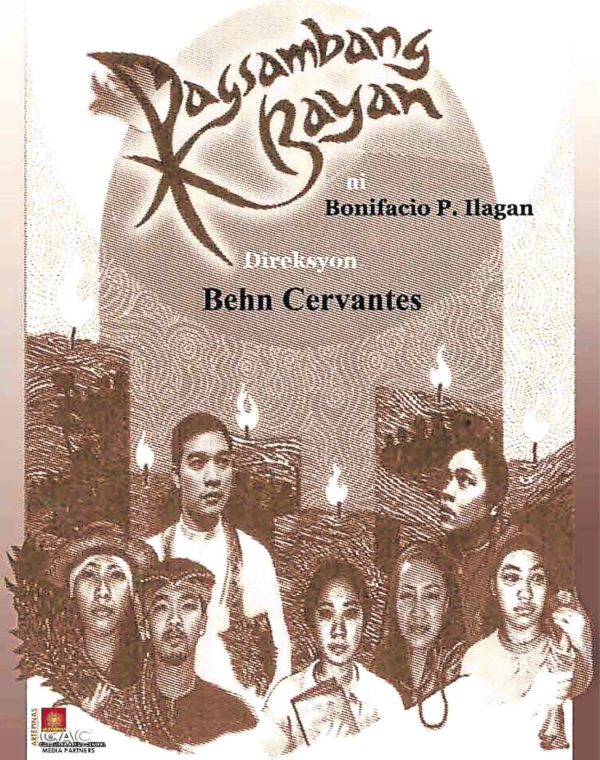
“Pagsambang Bayan”
The revival staging starting Aug. 4 at the Polytechnic University of the Philippines of the iconic play, “Pagsambang Bayan” (this time as a musical), prompts theater buffs to recall its important contribution to the fight against martial law in the ’70s.
Beyond renewed appreciation for the courageous efforts of playwright Bonifacio Ilagan and original director Behn Cervantes, the new production (megged by Joel Lamangan, with songs by Jed Balsamo and Lucien Letaba) has its own dynamic impetus and unction, due to martial law again being imposed in Mindanao.
The discussion isn’t just ruminatively nostalgic, it proceeds apace—in fact, it’s again the stuff of which headlines are made!
In light of the renewed relevance of activist theater, the 2017 staging of “Pagsambang Bayan” effectively serves as a tribute to its original director, Behn Cervantes, and has triggered a fresh wave of appreciative recollections by theater buffs and freedom lovers in general, and his theater colleagues in particular.
We were there from the very start, first appearing in Behn’s nonactivist plays and musicals at UP, then naturally easing into his more “engaged” and thus more controversial productions.
They were paced by Amelia Lapeña-Bonifacio’s “The Short, Short Life of Citizen Juan,” for which Behn tapped us to play the title role—a farmer who finally summoned up the courage to fight for his rights and for social justice.
The production was less audaciously subversive than “Pagsambang Bayan,” but it still aroused the ire of the powers-that-were, so rehearsals were more covert than for some of Behn’s other productions.
But, when performances started, the cast’s courage and commitment matched our director’s, despite the obvious risks and dangers involved.
Years later, Behn got us to step into his “signature” role in the feisty monologue, “Iskolar ng Bayan”—and he paid us the supreme compliment of graciously “conceding” (quite uncharacteristically for him) that “the show is now in even better hands!”
In addition, Behn’s audacious artistry affected us so much that we also directed some activist dramas, like “Mapait na Asukal” and “Satirika.”
We had learned a lot from his brave and insightful example, and made his commitment our own.
Even more significantly, we were by no means alone, with many other theater talents learning how to use live performances for seminal change and social justice.
Which is why Behn fully deserves the “tribute” restaging of “Pagsambang Bayan,” as well as other retroactive reminders of his major role in using activist theater to help restore freedom and justice for all Filipinos.
That the key objective has not yet been fully achieved—but, with Behn as guiding light and exemplary impetus, the engaged dramatic enlightenment continues!